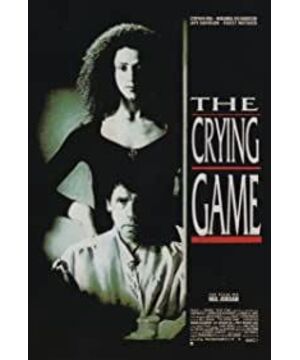After this painful discovery, the relationship between the two was reversed: the problem now is that Dill fell madly in love with Fergus, even though she knew her love was impossible. She went from a capricious mocker and supreme noble lady into a pathetic image of a fragile, emotional male servant in desperate love. It is at this point that true love appears. This love is like a metaphor in the strict Lacanian sense: we have witnessed the noble moment when the loved one stretches out her hand to "repay love" and becomes Lover. This moment marks the "miracle" of love and the elements of the "true domain answer"; in the same way, it may enable us to grasp what Lacan considers when insisting on the subject's own status as the "truth domain answer". That is, until the reversal of the object status of the loved one: He is fallen in love because of something that "surpasses him in him" and is unaware of him.
"My true fall in love is not simply bewildered by the portraits of the other, but the experience of the other and the beloved as fragile and lost, the experience of the lack of "it", and the cause of my love It survives this loss and still exists. In order not to ignore this upside-down place, we must pay special attention: Although we now replace the duality of the lover and the beloved with two love subjects, the wrong city still exists, Because it is the object itself, it seems to acknowledge its lack through its own subjectification. The mysterious, psychedelic, and elusive object of love exposes its deadlock and thus acquires the identity of another subject.
Therefore, Back to "The Notorious Game": Dill is now ready to do anything for Fergus, and he is more and more moved and fascinated by her absolute, unconditional love, so much that he overcomes his disgust and continues to comfort her In the end, when the IRA tried to get him involved in a terrorist act again, he even sacrificed himself for Dier and took responsibility for a murder committed by Dier. The last scene of the movie took place in prison, and she came to visit. He, dressed up as a seductive woman, so much that it attracted everyone in the visit room. Although Fergus had to endure more than 4000 days of prison life-they added them together, she sweetly promised Wait for him and visit him regularly...External obstacles—the glass partition in the visitor’s room prevents any physical contact—here just equal to the obstacle in elegant love, which makes the object inaccessible; So it illustrates the absolute and unconditional characteristics of this love, even though it is fundamentally impossible, that is to say, even though their love will never be fulfilled satisfactorily, because he is a "frank" heterosexual, and She is a gay transvestite.
In the preface of her script, director Jordan pointed out:
"The story ends with a kind of happiness. I say it is a kind of happiness, because it includes the isolation of a cell and a deeper isolation of race, ethnicity, and gender identity. But for lovers, it is the irony of this separation to their power that makes them smile. Because perhaps because of our separation, there is a kind of hope. "
The separation that leaves room for smiles—an obstacle that cannot be surpassed—isn’t the simplest mechanism for elegant love? What we have here is a kind of "impossible" love, it will never be complete, it can only be realized as a disguised landscape-this kind of landscape tries to confuse the audience's gaze, or realizes as a kind of infinite postponement The expectation of this kind of love; it is precisely because it not only transcends the barriers of class, religion, and race, but also transcends the ultimate barriers of gender anomaly and gender identity, this kind of love is absolute. The paradox of the film and at the same time its irresistible charm is here: it is not at all condemning heterosexuality as a product of male oppression, which just leads to the environment in which love maintains its own absolute, Unconditional characteristics.
View more about The Crying Game reviews











